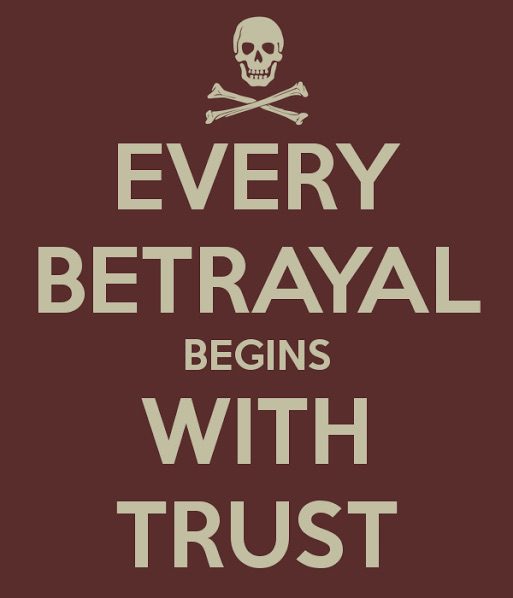“Sacrifice is at the heart of repentance. Without deeds, your apology is worthless.” — Bryan Davis

Who are apologies for you or the person offended?
Lately, apologies have been more about feeding the ego then rectifying an offense. It’s obvious when the offense is insincere when it affects a large number of people, and it comes from a brand or high profile individual.
The worst feeling in the world is when the person you care about commits the violation or offense. (The word offense is going to appear a lot to generalize the discussion.) We have all seen in some form or another this type of offense or violation. No one is immune to an emotional assault or betrayal. Especially from someone who is trusted and loved.
When they need you, you are there in their time of need. When it comes to that friend or relative being there for you well, that’s a different story. Emotional currency, like time, is irreplaceable. Often it’s wasted on folks who don’t value or respect your commitment to the relationship.
Most offenses and slights happen out of simple miscommunication. It happens all the time and everywhere. These miscommunications stem from different values, cultural upbringings, and past experiences. People tend to rush, getting to know each other, instead of taking time to learn each other’s quirks and habits. By rushing or skipping the process of establishing boundaries, this becomes problematic.
When the person commits the offense, and they want to salvage the relationship, verbal apologies are typically given. But what happens when the apology is just not enough? What happens when the offense cannot be repaired with just a simple verbal apology?
According to Gary Chapman, the best selling author of “The Five Love Languages.” He wrote “The Five Apology Languages” later renamed “When Sorry Isn’t Enough.” Apparently, people have different styles of accepting and receiving apologies. Out of curiosity, I went to his website and took the survey to determine what my apology language is. Come to find out its Restitution.
Here is an explanation of the apology type which I pulled from Gary Chapman’s website:
Make Restitution
In our society, many people believe that wrong acts demand justice. The one who commits the crime should pay for their wrongdoing. A mate who speaks this love language feels the same way towards apologies. They believe that to be sincere, the person who is apologizing should justify their actions. The mate who’s been hurt simply wants to hear that their mate still loves them.
There are many effective ways to demonstrate sincerity in an apology. Each party must learn the other’s love language to complete the act of Restitution. Though some mates may feel as though all is forgotten with a bouquet of flowers, that may not necessarily work for all mates. Every mate should uncover what their partner’s primary love language is (Words of Affirmation, Quality Time, Acts of Service, Physical Touch, and Receiving Gifts) and use that specific language to make Restitution in the most effective way.
For a mate whose primary apology language is making Restitution, no matter how often you say “I’m sorry,” or “I was wrong,” your mate will never find the apology sincere. You must show strong efforts for making amends. A genuine apology will be accompanied by the assurance that you still love your mate and have a desire to right the wrong-doings committed.
I was pleasantly surprised to learn there is an apology language. I have always known what type of apology I wanted and was willing to accept based on the type of offense committed. Also, my value on the relationship itself determined whether the apology would be accepted. For the smallest of slights, it’s all about the sincerity of the apology. It’s easy for me to determine if it was a simple miscommunication or if it was intended to offend me. I treat each situation uniquely.
Forgiveness is about freeing myself of the anger and resentment towards the individual. But it doesn’t mean allowing that person back into my life. I can easily forgive that it was a simple miscommunication and continue the relationship. I can also forgive and no longer want that person in my life.
I will say I know how to hold a grudge for an extended length of time. What’s interesting is, I don’t stay angry for long. I just don’t want that person in my space or in my life. I move on without them in it. Life is way too short and uncertain to allow people who don’t respect or care about me. I can’t let them be in my life, wasting my time, sucking up my emotional currency and mental space.
There have only been two people in my entire life I utterly despised. The first person I actually forgave. The anger and hatred were going on way too long, and it was consuming. I needed to let that anger go. The second person, my anger evolved into indifference. I feel nothing towards that person. Expressing any emotions to include irritation and hatred implies they still have a place in my heart. Indifference means if they died, I wouldn’t care, express any feelings or condolence. My reaction would be very icy. I simply don’t care. It’s the same indifference I feel when a random stranger dies, I really don’t care.
With maturity, my acceptance of apologies has evolved. I don’t place much emotional weight on verbal apologies alone. It’s all about context, sincerity, and most important the type of offense committed. It’s the actions that hold the majority of the weight.
For me, offenses involving time and trust can be forgiven only once. If committed for the second time, I view this as a lack of respect for me and my feelings. These are things that cannot be replaced or recouped. It takes a lot for me to allow someone back into my life after an incident. I believe in forgiveness, but I don’t believe in having them in my space. Forgiveness is about releasing my anger, not letting them back in.
When a person repeats the same offenses and follows it up with the same apology, there is an apparent lack of respect for me and the relationship. Not only is this toxic and unhealthy, but that relationship needs to be dissolved. Recognizing this toxic behavior is destructive and will not get better, it takes a great deal of strength and self-love to walk away from it.
I used to believe in giving multiple chances it took a good friend to show me, I was exhibiting signs of addiction and codependency. Think of the slot machine, staying longer, investing more only to be disappointed. My family to former friends was taking advantage of me due to my financial resources. When I could no longer provide monetary gain, they became unavailable emotionally as well as physically. I can recall I had a family member literally tell me if I gave them money they would love me. That’s when I cut her off completely.
It took me several years to start cutting folks off permanently. It was apparent I was being taken advantage of and exploited because of my desire to feel wanted and loved. I wasn’t respected, and my feelings didn’t matter. It’s incredibly hurtful, especially from family.
I can honestly say with time, reconditioning with some self-love and respect, I was able to break the cycle and addiction. I started to love myself first and appreciate my value and worth. It was tough, and it took time. In the end, I came out happier with more money in my pocket and newfound understanding and appreciation of enforcing boundaries. I learned how to recognize toxic people and their behaviors. By doing so, I reaffirm my self-respect.
I have spoken to countless people who have told me saying no is very difficult for them. I truly understand where they are coming from. What I follow up with is, would you allow someone to continue to expend your emotional currency if you knew they didn’t respect you? That question alone almost always changed their perspective on how they deal with people. Love and respect go hand in hand. It’s not selfish, manipulative, destructive, or toxic.
If someone is continuously disrespecting you and doesn’t follow up on their apology with actions to support it, that’s not love or respect. This applies to all types of relationships. In the end, it’s about your value and self-worth. Remember that you alone determine if they are worth being in your life. Remember that life is short and uncertain. Remember that you alone determine your value and self-worth. When a person doesn’t respect you then you tell them to F*!$k their apology!
Do you, Be you, Love you
Bohemian Life

